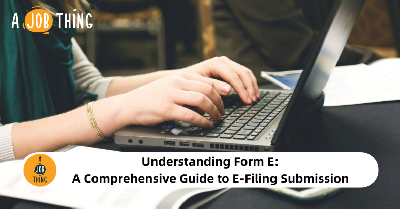
When Compensation Policies Cause Employees to Leave
Create Job Description Using AI
Write appealing job descriptions for any job opening to attract the most qualifield and suitable candidates. FOR FREE.
try now
Are you aware that the way your organisation approaches compensation policy can actually create employee turnover? With today’s tight talent market, keeping your employees is a priority. HR professionals and employers need to look at whether their pay practices are competitive enough to keep workers from leaving.
Why do they leave?
According to the report “The Evolution of Work 2.0: The Me vs We Mindset”, both employers and employees believe workers need to leave their organisation in order to achieve higher pay and career advancement. The report says this is a global phenomenon with different viewpoints based on the country.
In all countries except India, Netherlands, United States and the United Kingdom, employers underestimate the percentage increase in compensation it would take to cause an employee to change jobs. The largest gap is in South America where employees will consider moving for a 19% rate, while employers think it’s 16%.

South American employees and some in the Asian Pacific countries are most likely to change jobs. In these areas, employees are loyal to their jobs but move for more experience and better career advancement instead of just compensation.
3 ways compensation practices can lead to employee turnover
1. Organisations that lag the market in a particular job function will see higher turnover in that role
For example, if accountants at a business are always paid at 75% the market rate at one employer, there could be higher turnover than those that pay 100% or higher market rates.
2. Organisations with rigid compensation policies could cause employee turnover
For example, if an employer sets a policy that limits pay increases for employees who have worked less than 18 months, then high performers may leave before that time period elapses to find better pay at another competing organisation.
Instead of annual raises based on yearly reviews, some organisations are moving to more frequent opportunities for both feedback and increased compensation.
3. Organisations that routinely pay new external employees more than internal staff will risk longer-term employees
The Society for Human Resources Management reports that a new employee usually receives 18% to 20% higher pay than an internally promoted employe. This will encourage employees to leave and find better paying positions somewhere else.
These examples provide a clear view of how compensation decisions that are apparently unrelated to employee engagement can lead someone to leave the organisation if left unchecked.
Using compensation benchmarking as a retention predictor
The 2017 Human Capital Trends Report says that nearly 80% of global organisations see employee experience as an important matter for both engagement and retention. Studying these issues critically can help employers to prepare for and decrease retention risk.
First, one needs to gather and cross-reference turnover data with pay practices, compensation activity, and compensation benchmarking information.
Once an opportunity for improvement has been identified in the data set, the talent leader can apply that model to existing employees, prioritising high-value or high-potential staff.
Keeping employees through fair pay and raises
If the standard procedure is to maintain salaries for new hires for the first 18 months on the job, but a large number of employees leave at the 12-month mark, then organisations can run a research.
For a small pilot group of new employees, the employer can adjust pay rates at 12 months on the job, evaluating if the practice enables the organisation to retain those workers longer than the average new hire.

A fair compensation policy is needed to ensure employees stay loyal to the company. Pic source: Wikihow
Another example relates to hiring and compensation practices. If it’s concluded that paying external hires more than internal staff has caused a higher turnover for a particular employee population, then the employer can focus on changing the existing practice or planning a targeted risk mitigation strategy for retaining any high priority employees.
In order to keep high-performing employees and attract new talents, one must first understand and effectively manage compensation differences across the organisation.
Need to Fill Multiple Vacancies Urgently? Find out how AJobThing.com can solve your hiring in just 2 days by contacting 03 2242 4822 or WhatsApp us
This article is based on 3 Ways Compensation Policies Can Cause Employee Turnover by Ben Eubanks





